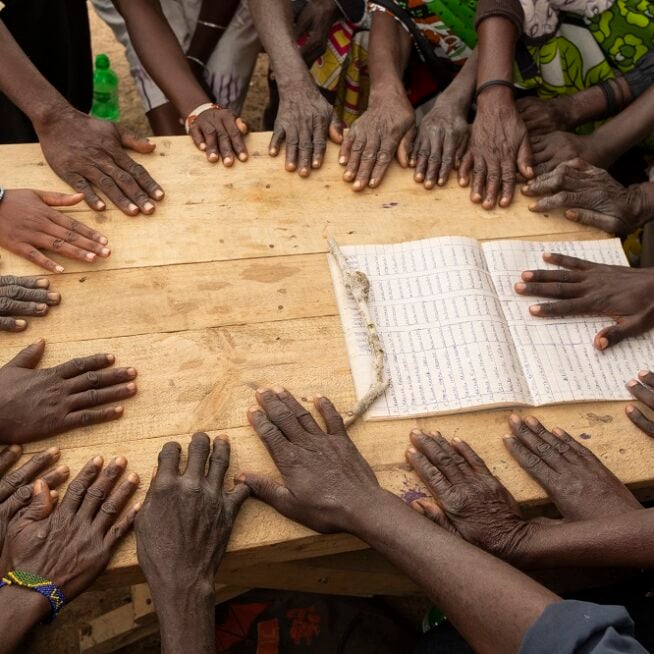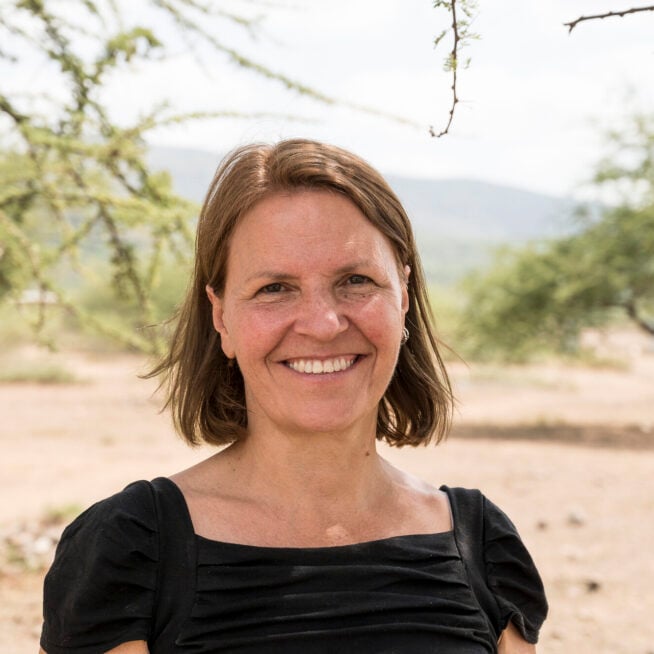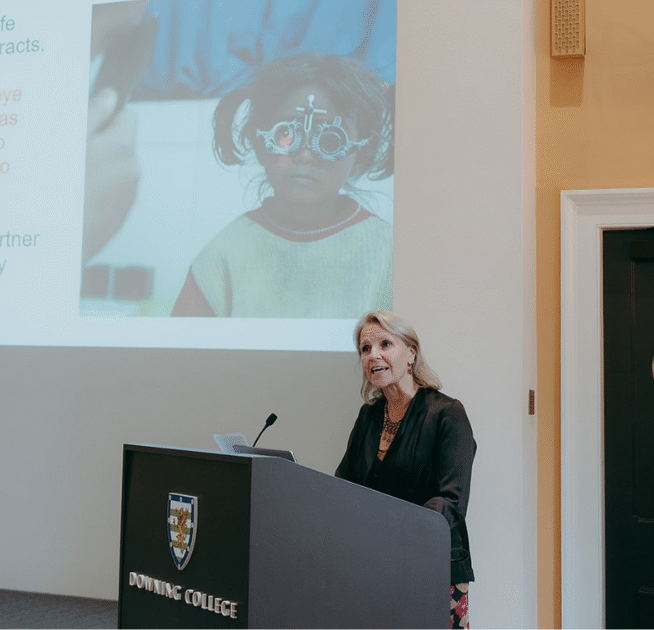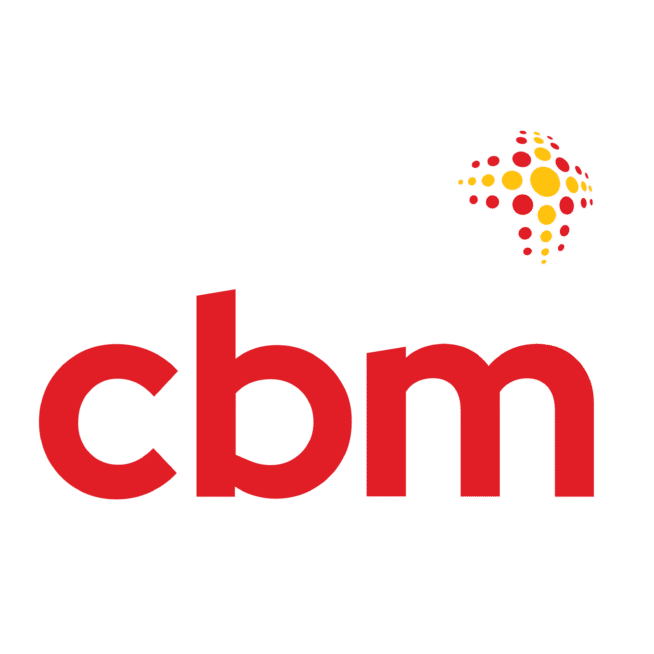Want to transform lives with us? Stay in touch and hear about our news, activities and appeals by email!
Cash assistance vs food: giving people receiving humanitarian aid a choice
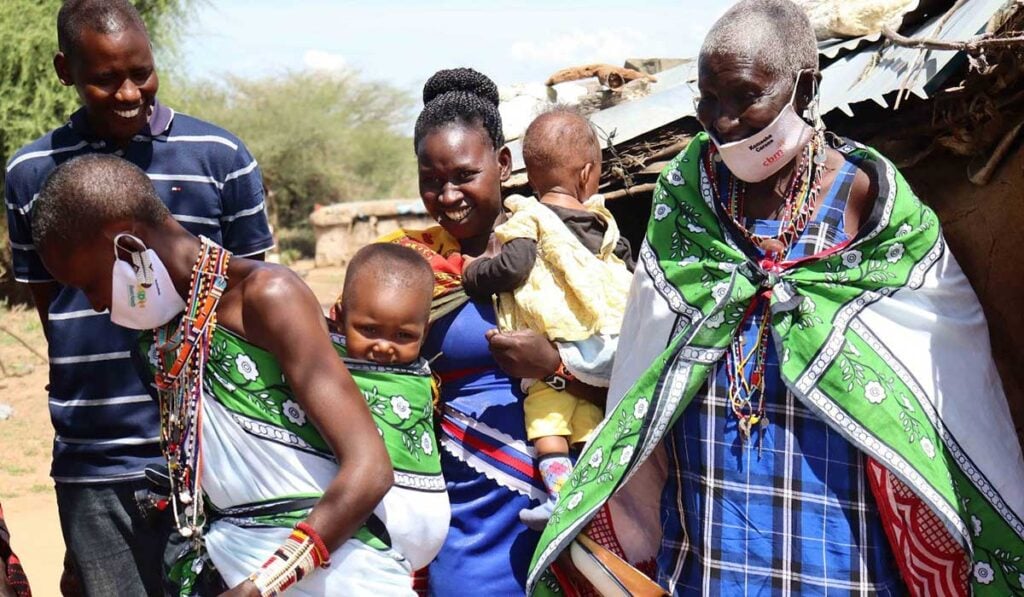
Yesterday, on World Humanitarian Day (19th August), CBM Global launched its new publication “Disability Inclusive Cash Assistance: Learnings from Practice in Humanitarian Response” (open link in new tab), presenting insights and learning on how humanitarian Cash Based Interventions programmes can be made more inclusive.
In partnership with Basic Needs Basic Rights Kenya, CBM has been providing mental health support for health workers and those affected by Coronavirus, in Kenya, as well as launching an emergency response programme in Kajiado and Bungoma Counties to provide cash assistance and food aid to the most at-risk families – particularly people living with psychosocial and physical disabilities.
Giving people a choice between cash transfers and food parcels meant that they could make their own decision about their immediate needs, which often resulted in people choosing cash assistance over food so that they could buy medication for their mental illness or physical disability. Interestingly, there was shown to be a 50/50 split between cash transfers and food. Food was said to be vital for people who were unable to work, because of their disability – exacerbated by periods of lockdown during the pandemic. Cash assistance was either used to purchase medication or food, depending on each family’s situation – but many people felt that regular medication was actually more important than food.
Hear from some of the community health workers, and families, involved in our emergency response programme and find out more:
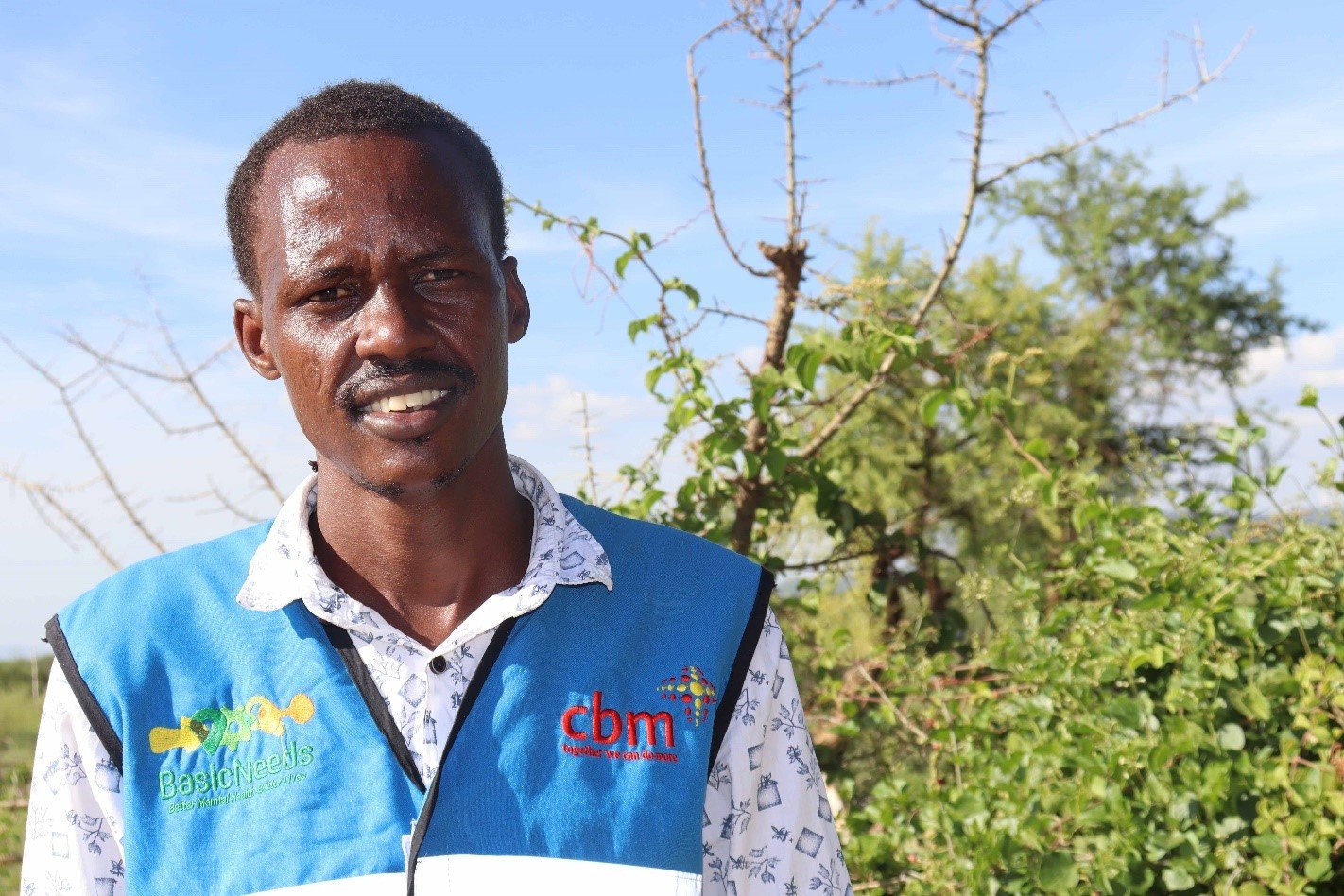
“The Covid-19 pandemic negatively impacted livelihood opportunities for persons living with disabilities in my community.”
Ezekiel has worked as a Community Health Assistant for two and a half years. His primary role is to act as a link between the community and the local health facility, including supervising Community Health Volunteers. This is his story:
“One of my primary tasks at the onset of the emergency program was identifying service users from within communities, who were most vulnerable and were in urgent need of support. Therefore, during the implementation of the Covid-19 emergency response project, working together with Community Health Volunteers, we identified 30 beneficiaries from various households in this community that rely on the local health centre for their medical needs. These beneficiaries primarily included persons with mental disorders, epilepsy as well as physical disabilities.
The 30 beneficiaries we selected from this community had the option of receiving monthly food parcels for three months or receiving cash amounting to Ksh2,500 per month for three months, and this was based on what they felt was their most urgent need. It was interesting that we had a 50-50 split, with 15 of the beneficiaries preferring cash while 15 preferred to receive food.
From the feedback we got directly from the beneficiaries, those receiving monthly food parcels got a significant relief because their disabilities had limited their ability to take part in available income generating activities. For instance, the communities in this area primarily rely on sand harvesting and livestock keeping as their source of income, and these are physically intensive activities that persons living with disabilities whether physical or psychosocial will have a hard time taking part in. They therefore have to rely on their families and other members of the community for food and other basic necessities. The situation was further compounded by the Covid-19 pandemic which negatively impacted these livelihood opportunities for instance, reduced demand for sand because many construction projects had been temporarily halted and reduced demand for meat because many hotels had been shut down. Therefore, the food parcels that they have been able to receive during the emergency period went a long way in ensuring that they had adequate food on the table.
On the other hand, the beneficiaries who received cash were very appreciative because they were able to direct the cash to their most pressing needs, with the biggest being the purchase of medication. Psychotropic and anti-epileptic medication, which are commonly prescribed to service users in this community, are often very expensive and it is therefore a struggle to afford them. It was interesting to note that many of these beneficiaries felt like medicines were more important than food.
There is still a lot of stigma in this community when it comes to persons living with disabilities, with it being associated with sin, and this has resulted in many families hiding members with disabilities. It will therefore be important for us to educate the community so that we can collectively tackle the stigma.”
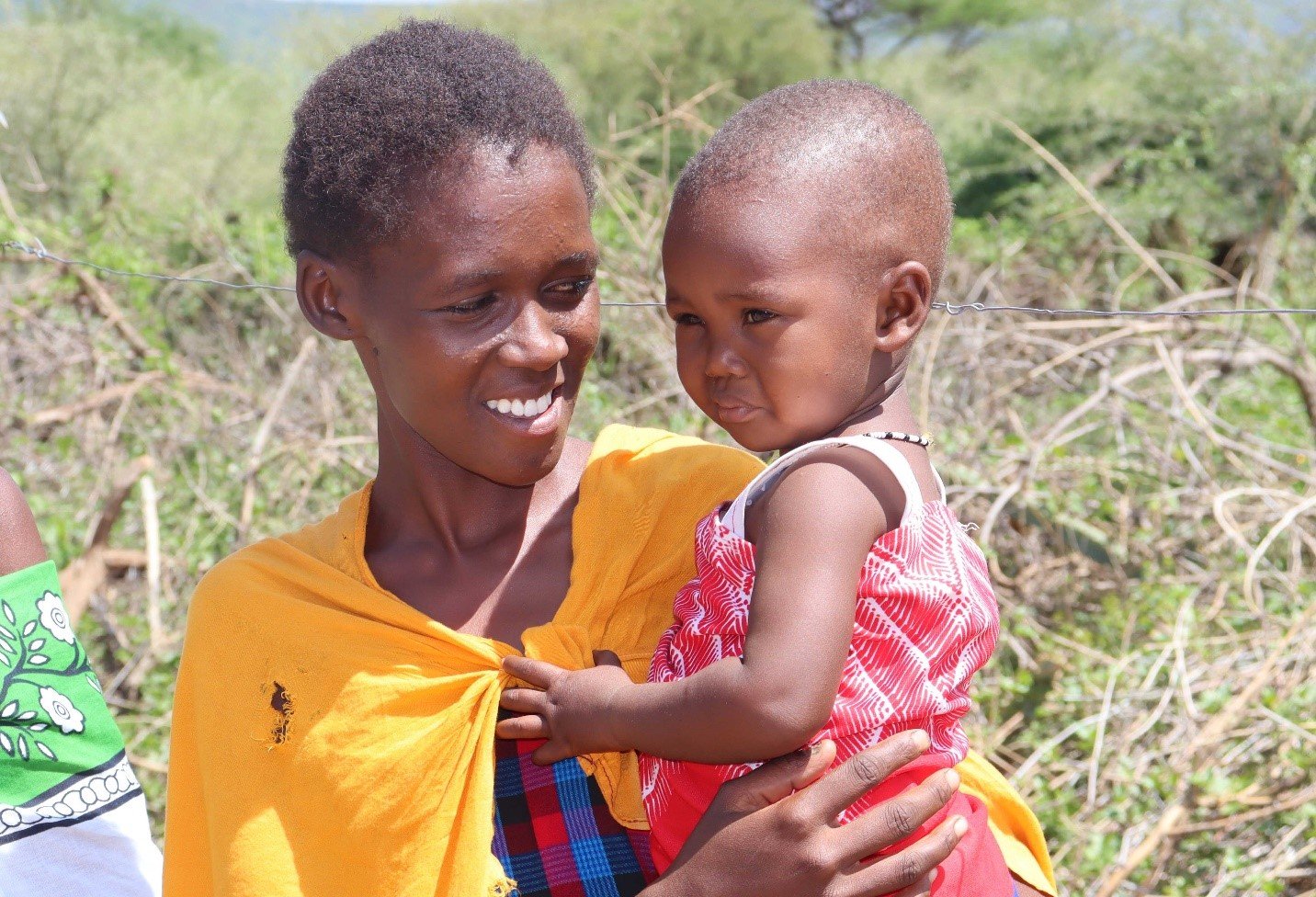
“For my family, it is often a choice between buying food or buying my medication and mostly, they choose food.”
Meet 20-year-old Naisia, a single mother to 18-month-old Evaline. Naisia has had Epilepsy since she was five years old and is one of the people receiving support through our Covid-19 response programme. Currently there are four members in her household with some form of physical, psychosocial or neurological disability.
“I was forced to drop out of school when I was 19 years old and this was soon after I had given birth to my daughter. I started experiencing more frequent epileptic attacks while in school coupled with ridicule from schoolmates, and this made it impossible for me to continue pursuing my education.
My family learnt about this emergency program from a Community Health Volunteer who selected me as one of the beneficiaries to receive monthly food parcels. Receiving the food was so beneficial for me because mostly for my family, it has always been a choice between buying food for the family or spending the little money they make from livestock keeping, on my medication and mostly, they choose food. However, because we have been receiving food for the past three months courtesy of this intervention, my family has been able to buy my medication with the money they would have otherwise spent on food.
We have also learnt a lot about the Coronavirus and measures we can take to protect ourselves and we make it a point to share the same information with our neighbours. It especially serves as a good reminder for community members when we see our mothers walking around with lesos branded with Covid-19 awareness messages in addition to hearing regular awareness messages over the local radio.”
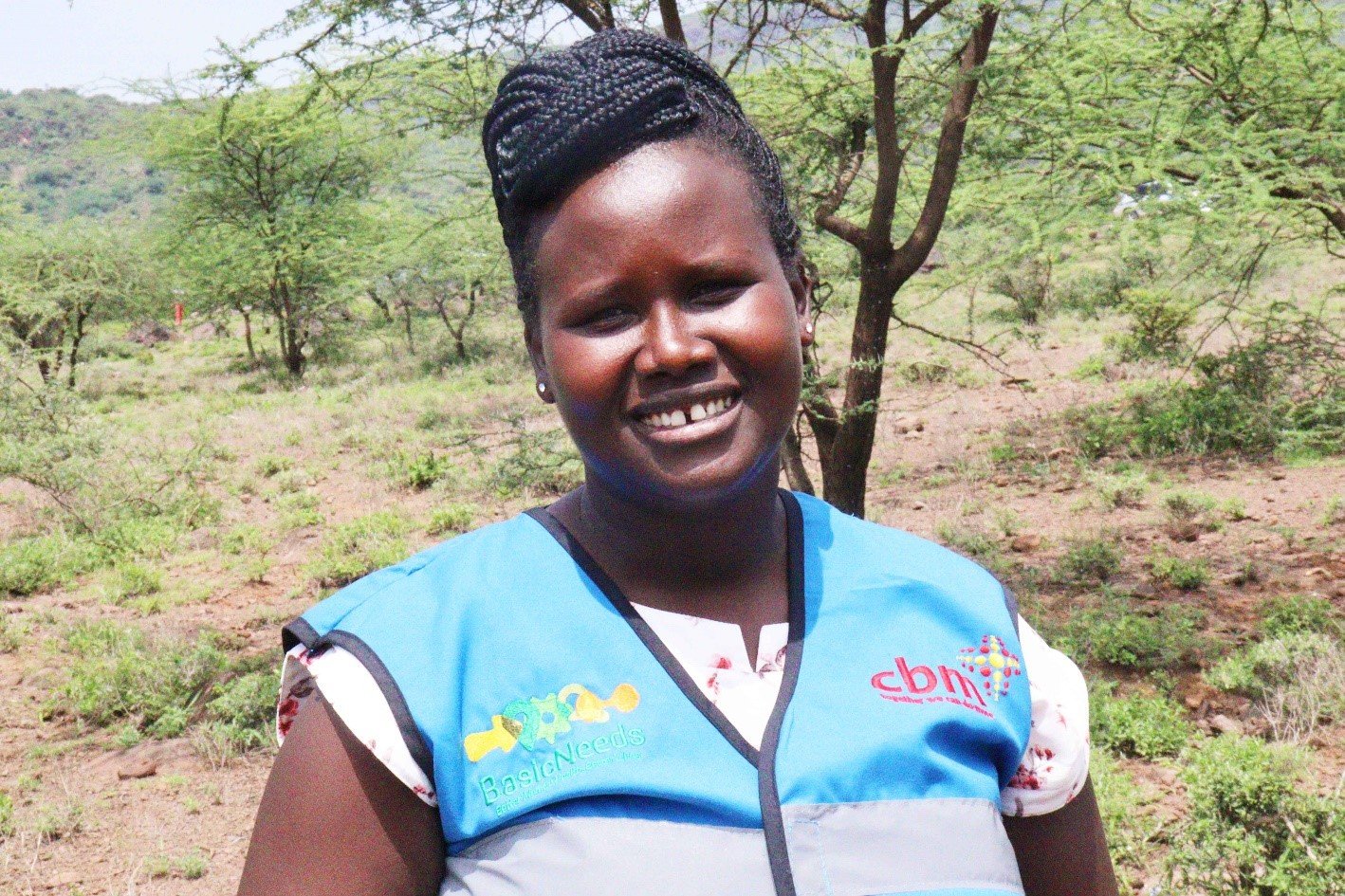
“This has been the first time in this area where an organization has come in to help persons living with disabilities.”
Ntoyian is a wife, mother of two, and a Community Health Assistant in Kajiado West Sub County. She is responsible for the promotion of public health messages in communities, including Covid-19 awareness and prevention and has been key in rolling out our emergency response programme. This is her story:
“The cash transfer program has really been helpful especially taking into consideration that medication such as Phenobarbital and Carbamazepine that are often used by Service Users in this community are quite expensive. The cash therefore has enabled them to be able to access medication for at least three months.
One of the interesting results from this emergency programme is that more families within this community are coming out openly to seek for help for their family members with different forms of disability. During the household mapping exercise that we conducted at the start of this intervention, we were able to identify 30 individuals from within this community that were living with some form of disability either physical or mental, however today as we are approaching the close of the program, my list has grown to 70. I do not know what we can attribute to this increase, maybe it is the fact that they have seen others receive medication or maybe it is because they have seen that we genuinely care about them.
In this community, parents have a tendency of keeping their children hidden if they have any form of disability. For instance, you may go to a household and the parents tell you that they have three children, but the truth is that they have four children but the fourth one is not counted because they have some form of disability and the parents do not want anyone to find out. However, since we started this emergency program, I have noted that more and more parents within this community are now opening up and coming out to seek for help for their children.
I mostly do this because I am passionate about serving and helping my community. I believe that community work is essentially voluntary and a calling from God. I feel fulfilled when I am able to ensure that a child or a sick person within my community is able to access much needed medication. Now it is especially more fulfilling because thanks to the financial support I and other Community Health Volunteers have received from Basic Needs and their partners CBM during implementation of this emergency program, we have been able to reach out and assist persons living with mental and physical disabilities within my community, something that never used to happen.”
Images: 1st – Naisia’s family. 2nd – Ezekiel, Community Health Assistant. 3rd – Naisia and her baby daughter. 4th – Ntoyian, Community Health Assistant. ©CBM

